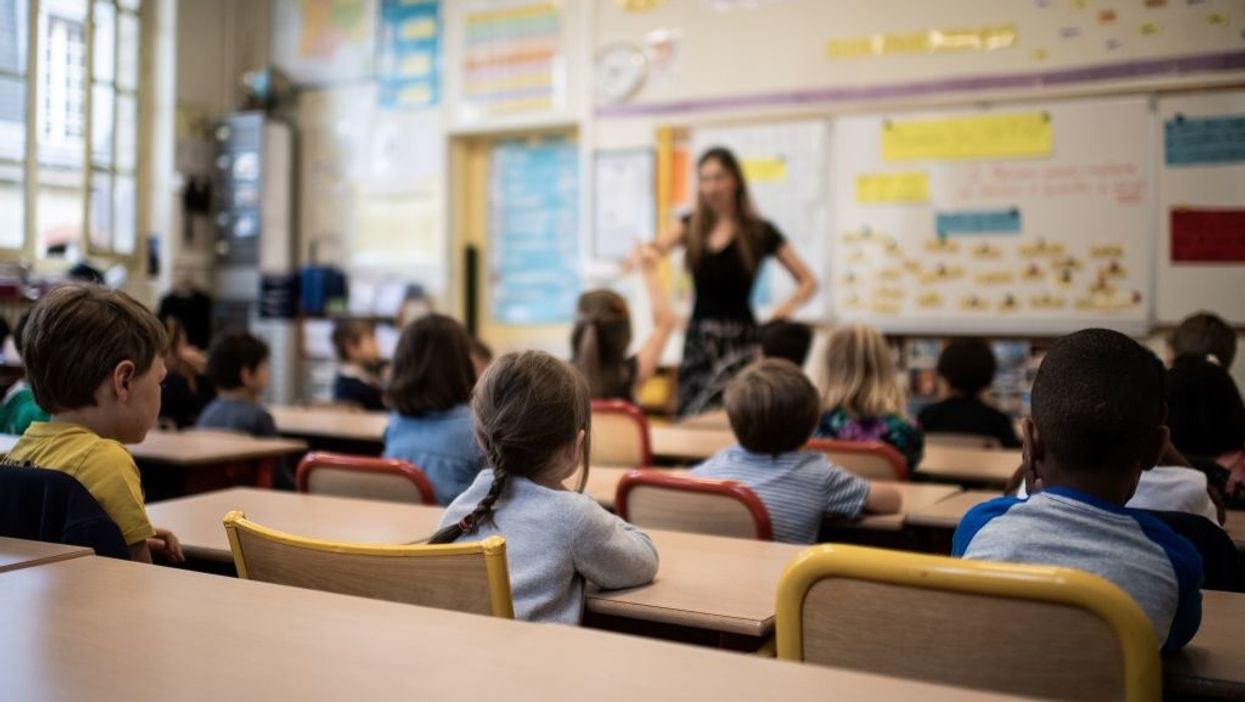
MARTIN BUREAU/AFP via Getty Images

'Children act more as a brake on infection'
With August quickly approaching, many school districts across the country have already mandated online learning for students over fears that congregating students would further spread coronavirus.
But according to a recent study in Germany — completed by the Medical Faculty of the TU Dresden and University Hospital Carl Gustav Caru — transmission of COVID-19 among younger people is rare.
From CNBC:
The results showed that out of 2,045 blood samples collected from students and teachers from across 13 secondary schools in [Saxony] only 12 samples were found to contain antibodies against Covid-19.
Tests were carried out in several schools where there had been known outbreaks of the virus, and 24 of the participants had at least one confirmed coronavirus case in their household. Nonetheless, only one of those 24 participants was found to have antibodies, the study noted.
In fact, the study found that schools do not become virus hotspots once they reopen. According to the study, "the dynamics of virus spreading have been overestimated," CNBC reported.
Prof. Reinhard Berner, the head of pediatric medicine at Dresden University Hospital and a leader of the study, said the study proves "the opposite" of the claim that schools could be super-spreaders of the virus.
"Children act more as a brake on infection," Berner said. "Not every infection that reaches them is passed on."
Researchers in Iceland and Europe have similarly concluded that children do not easily transmit COVID-19.
From Wired:
There is also a wealth of evidence that children do not transmit the virus at the same rate as adults. While experts note that the precise transmission dynamics between children, or between children and adults, are "not well understood"—and indeed, some argue that the best evidence on this question is that "we do not have enough evidence"—many tend to think that the risk of contagion is diminished.
Jonas F. Ludvigsson, a pediatrician and a professor of clinical epidemiology at Sweden's Karolinska Institute, reviewed the relevant research literature as of May 11 and concluded that, while it's "highly likely" children can transmit the virus causing Covid-19, they "seldom cause outbreaks." The World Health Organization's chief scientist, Soumya Swaminathan, suggested last month that "it does seem from what we know now that children are less capable of spreading" the disease, and Kristine Macartney, director of Australia's National Centre for Immunisation Research and Surveillance, noted a lack of evidence that school-aged children are superspreaders in her country. A study in Ireland found "no evidence of secondary transmission of Covid-19 from children attending school."
And Kári Stefánsson, a leading researcher in Iceland, told The New Yorker that out of some 56,000 residents who have been tested, "there are only two examples where a child infected a parent. But there are lots of examples where parents infected children." Similar conclusions were drawn in a study of families in the Netherlands.
Still, only a small number of Americans — just 19% according to one recent survey — believe that schools should reopen fully this fall.